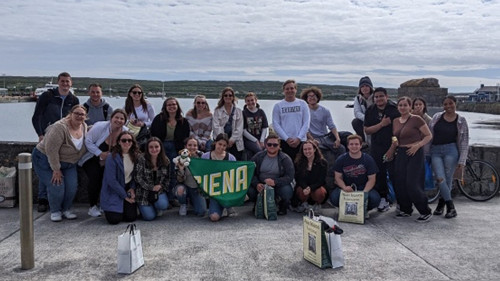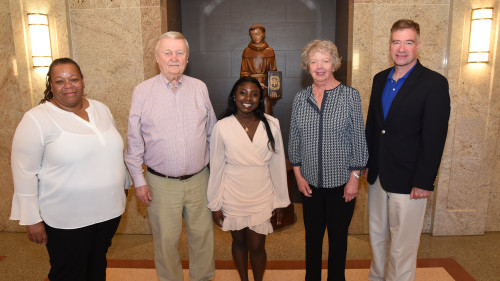
What can history teach us about pandemic response?
Emily Hamilton, Ph.D., assistant professor of history at the University of Massachusetts, Amherst explored that topic as the History Department’s annual distinguished lecturer on October 12.
In “What’s So New About the ‘New Normal’? What History Can Tell Us About the Scientific and Social Responses to Pandemic,” she examined the ways invisible pathogens shape our culture and history – whether those pathogens are from the 1918 Spanish influenza or this year’s coronavirus scourge.
“These times that we are now calling ‘unprecedented’ very much have precedent,” Hamilton said. “This is decidedly not new. It is totally old and totally normal.”
She said the spread of pathogenic diseases has challenged society repeatedly over the centuries, and that what we are facing today – fear, uncertainty, anger, sacrifice – is nothing new. The societal impact of these pandemics is consistent.
“Flattening the curve is going to have severe economic and social impacts, and there is no avoiding that. This usually leads to fear and persecution, even the thought that God may be punishing us.”
Lasting societal change can also be driven by pandemics and plagues, she explained. In the Middle Ages after waves of the Black Death, the increased pay and value of laborers led to the downfall of serfdom. HIV/AIDS led the drive for LGBTQ awareness and rights. The Spanish flu, accompanied by World War I, drove an increasing number of women into the workforce, which in turn helped the causes of suffrage and equal pay.
“This year’s distinguished history lecture is especially timely and topical. It gives us a chance to put the global novel coronavirus pandemic in historical perspective, and hopefully learn from the past.”
Tim Cooper, Ph.D., assistant professor of history
“Her thought-inducing presentation made it clear that the contemporary scientific and social responses to COVID-19 were not unimaginable, although the outbreak itself was unprecedented. It was an informative and interesting presentation.”
Aislinn Guy ’21

